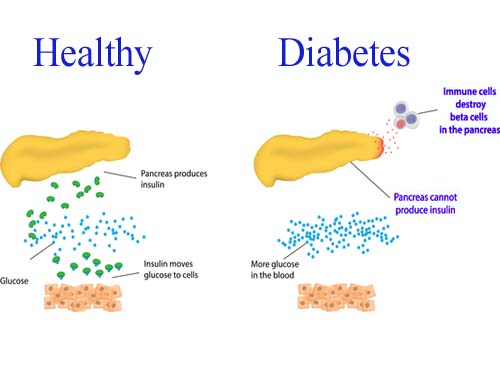Type 1 Diabetes
Type 1 diabetes, which used to be called insulin dependent or juvenile diabetes, makes up about 10% of the diabetes cases in the United States. Most cases of type 1 diabetes are diagnosed in those under the age of 30. Symptoms often develop abruptly and the diagnosis is often made in an emergency room setting. The affected person may be seriously ill, even comatose, with very high glucose levels and high levels of ketones (ketoacidosis). Type 1 diabetics make very little or no insulin. Any insulin-producing beta cells they do have at the time of diagnosis are usually completely destroyed within 5 to 10 years, leaving them entirely reliant on insulin injections to live. The exact cause of type 1 diabetes is unknown, but a family history of diabetes, viruses that injure the pancreas, and autoimmune processes, in which the body's own immune system destroys the beta cells, are all thought to play a role. Type 1 diabetics may have more severe medical complications sooner than other diabetics. About 40% of those with type 1 diabetes will develop serious kidney problems leading to kidney failure by the age of 50.
